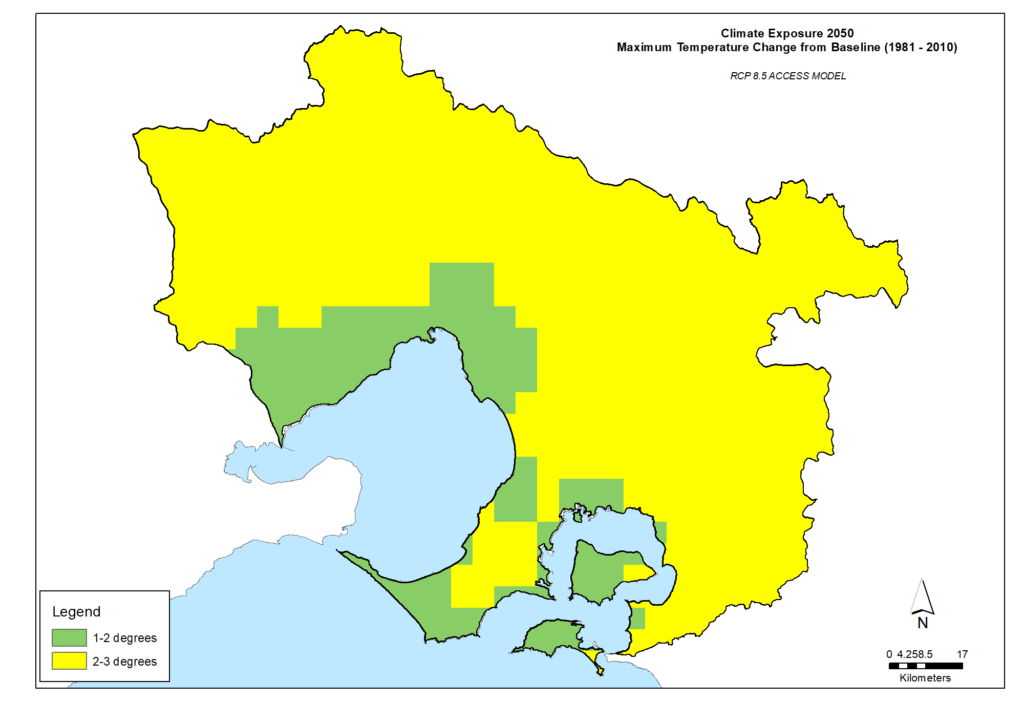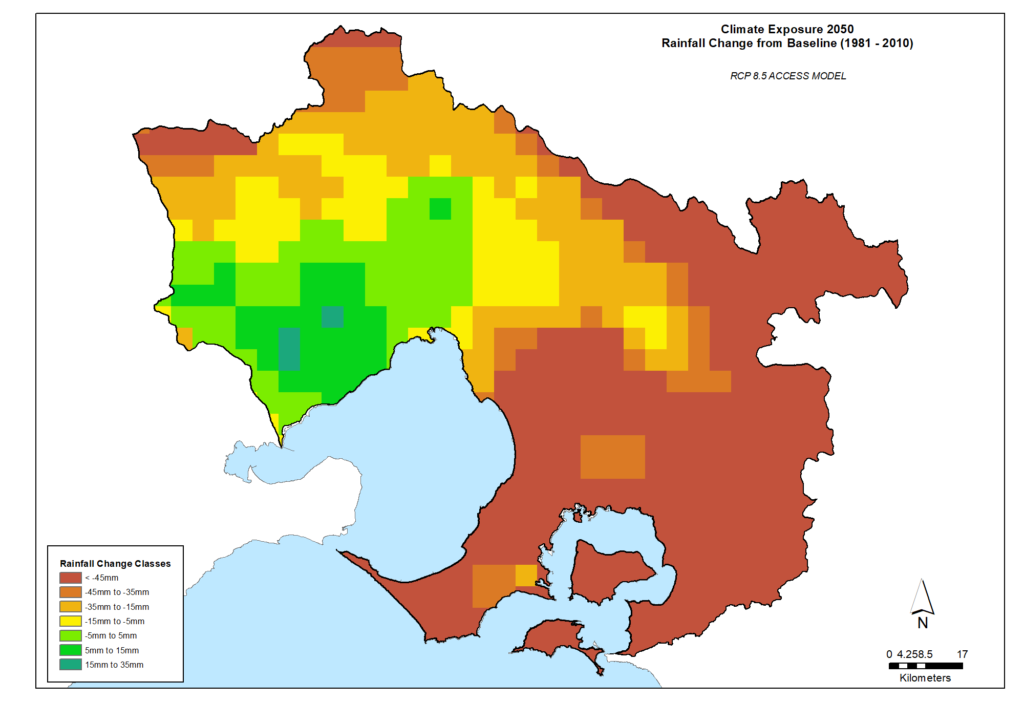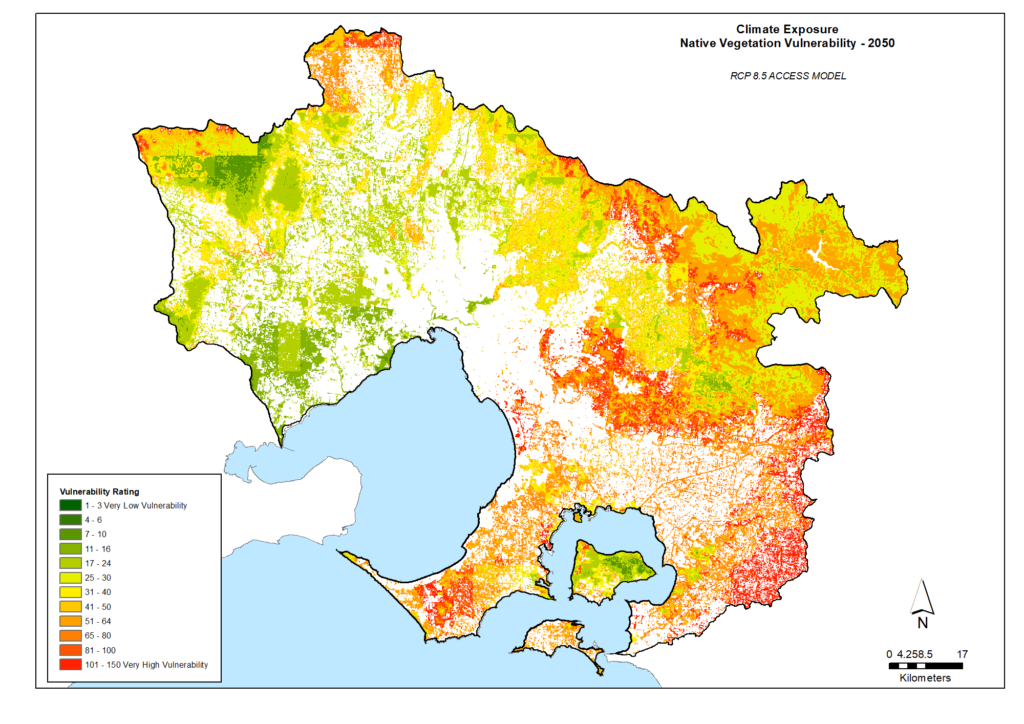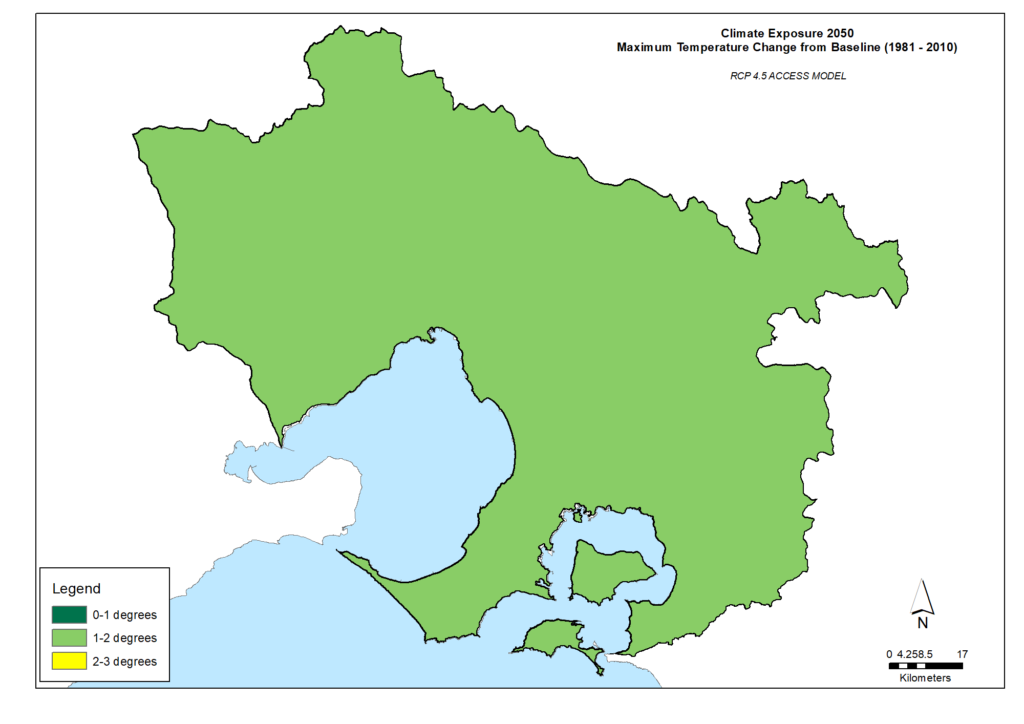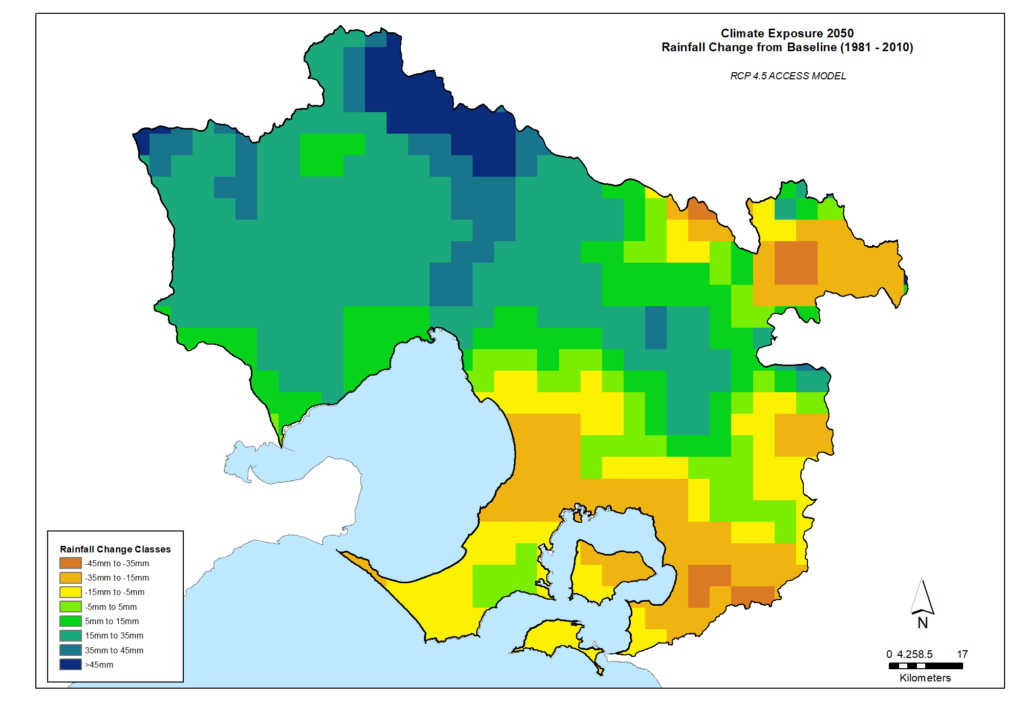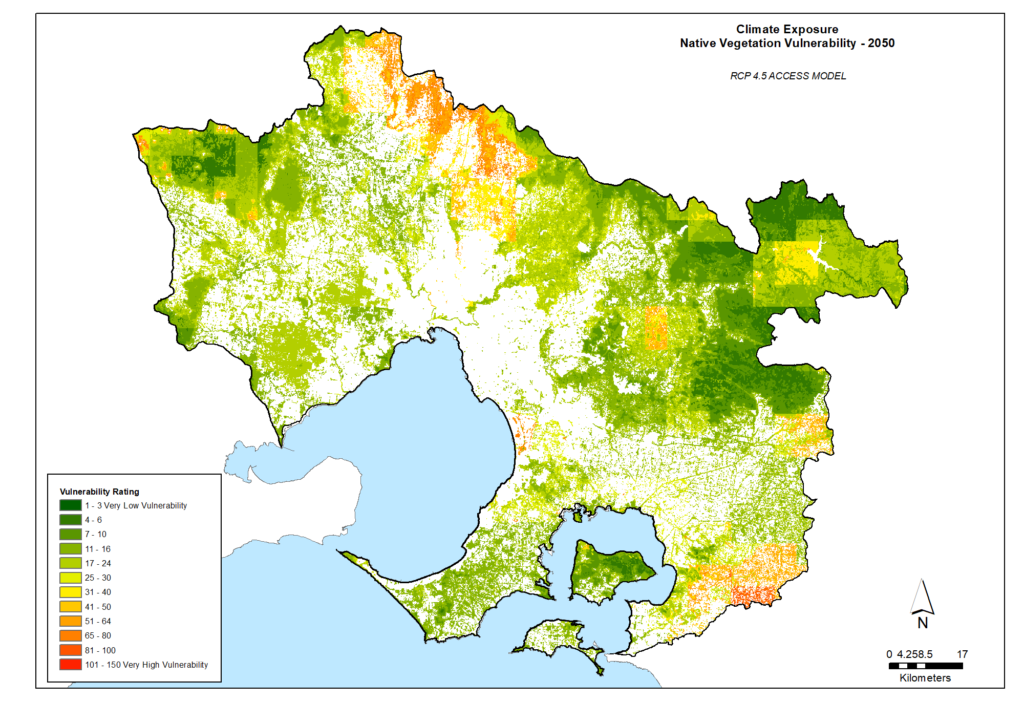A changing climate
The latest scientific report on climate change makes sobering reading. It’s now certain that human influence has warmed our planet at a rate unprecedented in at least 2,000 years.
It will be difficult now for the world to meet the goal to limit global temperature increase to 1.5°C. Instead, preventing global average temperatures increasing beyond 2°C above pre-industrial levels will require immediate and comprehensive action. The intensity and frequency of extreme weather will increase under all feasible scenarios. In Australia, the triggers to the 2019-20 bushfires were made more likely and more severe by climate change.
These impacts are being felt across our region too. The Port Phillip & Western Port region’s climate is becoming warmer, drier, more extreme and less predictable:
- The average temperature has risen more than 1 degree over the past century
- There are more hot days and heatwaves
- Droughts and bushfires have become more frequent and severe
- Average rainfall has fallen
- Waterway flow volumes and timing have changed
- Damaging winds, hail and flash flooding have become more frequent and severe
- Sea levels have risen approximately 225 millimetres since 1880
- Oceans have become warmer and more acidic
- Native plants and animals are being adversely affected by climate while some pest plants and animals thrive.
These changes threaten to disrupt our regional economies, especially primary industries dependant on soils, weather, water, pest and disease control. Climate change poses new risks to water and energy supplies, community health and wellbeing. Extreme weather could overwhelm emergency and crisis responses.
Climate change is likely to increase and complicate existing environmental stresses in unpredictable ways. Helping the environment be resilient to these changes means doing a lot more of what we do now – protect the diversity of life, stop stealing nature’s living space and reduce the threats and pressures humans have brought to species and habitats.
Policy and planning
Australia is party to the Paris Agreement. The Paris Agreement came into force in 2016. It builds on ongoing international efforts to address climate change under the:
The Paris Agreement aims to strengthen the global response to the threat of climate change by:
- holding the increase in the global average temperature to well below 2°C above pre-industrial levels
- pursuing efforts to limit temperature increase to 1.5°C
However, the Intergovernmental Panel on Climate Change (IPCC) August 2021 report states it will be difficult now for the world to meet the goal to limit global temperature increase to 1.5°C.
At the national level, the Australian Government’s Department of Industry, Science, Energy and Resources develop and administer the Government’s domestic actions to reduce Australia’s greenhouse gas emissions and meet obligations under the Paris Agreement.
In Victoria, the Climate Change Act 2017 provides a legislative foundation to manage climate change risks, maximise the opportunities that arise from decisive action, and drive our transition to a climate resilient community and economy.
Climate action has two major themes:
- Mitigation – work to reduce atmospheric carbon emissions.
- Adaptation – building resilience to extreme weather and other consequences of climate change so that industries, communities and environments continue to function and meet our needs.
The Climate Change Act 2017 establishes the Victorian Government mitigation target to achieve net zero carbon emissions by 2050.
Adaptation action is guided at State level by Victoria’s Climate Change Framework and Victoria’s Climate Change Strategy. Adaptation Action Plans have been in place from 2022 for seven key systems of Victoria’s environment and economy – Built Environment, Education and Training, Health and Human Services, Natural Environment, Primary Production, Transport and the Water Cycle. An overview of actions is available at Victorian Government action on climate change.
The former Department of Environment, Land, Water and Planning (now Department of Energy, Environment and Climate Action) also partnered with CSIRO’s Climate Science Centre to prepare information to support adaptation planning – Victorian Climate Projections 2019. These provide modelled predictions for average and extreme temperature and rainfall, relative humidity and evaporation to 2090 for moderate and high greenhouse gas emissions scenarios. The Greater Melbourne Climate Projections 2019 provides this information for the Port Phillip & Western Port region.
Climate predictions in figures and maps to support adaptation action for land, water and nature conservation is provided by Climate Ready Natural Resource Management Planning in Victoria. This website also provides information focused on the Port Phillip & Western Port region.
Regional-scale planning is underway to develop a Regional Climate Change Adaptation Strategy for Greater Melbourne. Specific planning for the water sector has also been undertaken in the Pilot Water Sector Climate Change Adaptation Action Plan.
Climate change mitigation and adaptation are prominent themes in Plan Melbourne, a strategic plan to guide sustainable growth across the Greater Melbourne area for the next 35 years. Plan Melbourne’s Outcome 6 sets directions for a low-carbon city to help Victoria achieve its target of net zero carbon emissions by 2050. Its adaptation directions embrace other public policies and strategy for water conservation, urban cooling and greening, open space and metropolitan parks, urban nature, coastal and waterway conservation.
Planning and investment for water infrastructure and use is also underway which will respond to climate change. A Central and Gippsland Region Sustainable Water Strategy has been prepared and focuses on water conservation and efficient use, greater use of recycled water and stormwater, better water-sharing arrangements and improving how water entitlements and trade can be used to better manage risks. Opportunities for the use of recycled water and stormwater are also being explored as part of the Integrated Water Management planning for each of the Westernport, Dandenong, Yarra, Maribyrnong and Werribee catchments.
Adaptation through urban cooling is also being advanced through ‘Living Melbourne: Our Metropolitan Urban Forest’. This strategy is endorsed by 32 metropolitan councils. It describes actions to improve city resilience, biodiversity and urban cooling and greening with ambitious goals for enhanced and new tree and shrub cover.
At the municipal level, many councils are also integrating climate change mitigation and adaptation into their decision-making and are strongly advocating for climate action. Some Councils have made emissions reduction pledges and the following have formally declared a ‘climate emergency‘:
- Bass Coast Shire Council
- Cardinia Shire Council
- Mornington Peninsula Shire Council
- Frankston City Council
- City of Greater Dandenong
- Kingston City Council
- Bayside City Council
- City of Port Phillip
- Glen Eira City Council
- City of Stonnington
- Darebin City Council
- Yarra City Council
- Moreland City Council
- Maribyrnong City Council
- City of Melbourne
- Moonee Valley City Council
- Banyule City Council
- Manningham City Council
- Brimbank City Council
- Yarra Ranges Shire Council
- Macedon Ranges Shire Council
- Hobsons Bay City Council
- City of Greater Geelong
- Municipal Association of Victoria
This region’s current climate and projected changes
The Port Phillip and Western Port region has mild to warm summers with an average maximum temperature of around 22 to 24°C near the coast and in the ranges to the east, and 25 to 27°C in the Melbourne area and further inland. In winter, average maximum temperatures are mostly around 12 to 14°C and frosts occur inland, but are rare near the coast and in inner urban areas. On average, annual rainfall across the region is approximately 860mm, but is less than 600 mm to the west of Melbourne and more than 1400 mm in the Dandenong Ranges.
Our climate in Victoria has already warmed by more than 1°C over the past 100 years. We are already experiencing hotter days, more frequent and intense bushfires and accompanying smoke, more intense storms and flooding as well as sea level rise. The disruption caused by these impacts is already affecting homes, businesses and the natural environment. Temperature rise above 1.5°C will lead to major and irreversible damage to ecosystems, putting our region’s coveted liveability in danger.
The former Department of Environment, Land, Water and Planning (now Department of Energy, Environment and Climate Action) commissioned Spatial Vision to analyse and report on the vulnerability of Victoria’s biodiversity/native vegetation to climate change. The report, produced in 2021, presents modelling at regional scale for temperature and rainfall change under two scenarios (Representative Concentration Pathways 8.5 and 4.5 – often referred to as RCP 8.5 and RCP 4.5). In simple terms, RCP 8.5 is what might be expected if the current trajectory for climate change mitigation is continued into the future, and RCP 4.5 is what might be achieved if increased mitigation is put in place and global emissions are significantly reduced from current levels. The report maps potential raninfall and temperature change and combines it with information about native vegetation in the region to produce mapping of potential vulnerability of the vegetation.
The following maps (drawn from the report’s information) illustrate the modelled impacts of climate change at 2050 under the RCP 8.5 carbon emissions scenario. This is what might occur with the current trajectory of emissions, with long term global temperature increase headed towards 3 degrees and more.
The following maps illustrate the modelled impacts of climate change at 2050 under the RCP 4.5 scenario. This is what might be achieved if significant reductions in carbon emissions from the current trajectory are achieved, with global temperature increases limited to perhaps around 1.5-2 degrees.
Challenges
Climate projections for our region indicate that temperatures will continue to increase, with less frosts, rainfall will continue to decline, and we can expect more extreme weather events including bush fire weather and heavy rainfall events. Sea levels are expected to continue rising.
The Port Phillip and Western Port region can expect:
- More frequent and longer heat-waves which can impact human health and built infrastructure
- More bushfire weather with increased severity and frequency of grass fires
- More heavy rainfall events resulting in flash flooding that will impact and disrupt businesses and commuters, with flow on effects for tourism and the economy
- Extreme weather events including severe storms that will impact people, businesses and built infrastructure
- Poor air quality associated with increased severity and duration of bushfires and worsening air pollution levels associated with a hotter climate
- Ongoing sea level rise with associated coastal erosion and coastal flooding that will impact natural areas, as well as private and public assets including jetties and roads.
Our region has certain characteristics and driving forces that set it apart from other regions in Victoria. We have a large population, high numbers of vulnerable people and a large ageing population. Population density is increasing and our community is culturally diverse. As a large city we have high resource and energy demands, as well as a rapidly growing built environment with associated infrastructure needs. Our region contains a high percentage of the state’s jobs (expected to reach 80% by 2046). It’s the centre for much of our state-wide infrastructure and many of our state and national businesses. Our region includes many small businesses as well as national and international businesses. It is also where major transport hubs are located; including airports, seaports and central train and bus stations. Despite our population density and large urbanised area, the region supplies significant amounts of agricultural and horticultural products to Victoria and beyond.
Geographically our region is diverse – we have coastlines that are natural as well as built up, volcanic plains and grasslands in the west, forests and woodlands on the eastern fringes, agricultural lands, rivers, creeks and two bays, as well as some areas of state and national parks.
Some climate change challenges are increased by our large urban area. For example, our region has less green space per person than other regions with significant pressures on our parks and natural areas. Built up areas exacerbate flash flooding and intensify the urban heat island effect. A hotter climate and more frequent heat-waves will increase urban heat impacts and significantly affect people’s health, particularly in heat-vulnerable communities. It will also affect biodiversity in urban environments, such as increasing tree mortality and changes in the composition of heat-sensitive flora and fauna. Impermeable urban infrastructure such as roads and rooftops increase heat-gain and affects the quality and volume of stormwater entering the catchment system.
Climate change is likely to be making obsolete and perilous the trade-offs between development and conservation used in previous ‘balanced decision-making’.
Directions and targets for the future
A Regional Climate Change Adaptation Strategy for Greater Melbourne is being developed to identify and prioritise actions in this region for the next five years. The strategy takes a ‘systems approach’, i.e. looking at the whole system to reveal connections and implications of events and actions. Action areas in the strategy will include:
- Supporting and building capability in business and vulnerable industries
- Supporting climate resilient service delivery, such as protecting staff and volunteers in weather extremes
- Increasing and enhancing the natural environment, urban green spaces and parks in recognition of the role of vegetation in buffering weather extremes and supporting society well-being
- Improving monitoring and evaluation to better understand the emerging risks and ways to address them
- Solving specific problems in at-risk locations such as areas of the coast and the urban fringes.
Urban cooling and greening, including increasing the urban canopy cover, are also identified as priorities in the implementation of Plan Melbourne and in Living Melbourne: Our Metropolitan Urban Forest. An increase in urban greening innovations, such as green roofs and walls, are expected to be achieved by becoming part of Environmentally Sustainable Design credentials of new buildings and other structures.
To help achieve net zero carbon emissions, opportunities exist to undertake major revegetation programs that will sequester carbon from the atmosphere and also have additional benefits for biodiversity, cooling, waterway health and land management. Similarly, opportunities for capture and storage of ‘blue carbon’ in the wetland, coastal, estuarine and marine environments of the region could have multiple benefits. More or better ways for capturing and storing carbon in soil are also expected to emerge, and may offer opportunities for agricultural industries.
Regional Catchment Strategy targets
The following targets, relevant to natural resource management in this region, will contribute to mitigating and adapting to climate change.
Progress toward these targets will be monitored primarily by using quantitative and qualitative information developed and published by the Victorian Government, water corporations and various other sectors and organisations involved in carbon emission reduction and climate adaptation.
Target 15.1 – Carbon emissions
Target 15.2 – Cooling, greening Melbourne
Target 15.3 – Climate change adaptation
Partner organisations
The following organisations formally support the pursuit of the visions and targets for climate change. They have agreed to provide leadership and support to help achieve optimum results with their available resources, in ways such as:
- Fostering partnerships and sharing knowledge, experiences and information with other organisations and the community
- Seeking and securing resources for the area and undertaking work that will contribute to achieving the visions and targets
- Assisting with monitoring and reporting on the condition of the area.
Victorian Government
- Department of Energy, Environment and Climate Action (DEECA)
- Melbourne Water
- Parks Victoria
- Environment Protection Authority Victoria (EPA)
- Victorian Planning Authority
- Victorian Fisheries Authority
- Trust for Nature
- Sustainability Victoria
- Greater Western Water
- Yarra Valley Water
- South East Water
- South Gippsland Water
- Westernport Water
- Southern Rural Water
- Phillip Island Nature Parks
- Zoos Victoria
Local Government
- Association of Bayside Municipalities
- Hume City Council
- City of Whittlesea
- Brimbank City Council
- Moonee Valley City Council
- Wyndham City
- Moorabool Shire Council
- Hobsons Bay City Council
- Macedon Ranges Shire Council
- City of Melbourne
- Monash City Council
- Kingston City Council
- City of Port Phillip
- City of Casey
- Cardinia Shire Council
- Baw Baw Shire Council
- City of Greater Geelong
- Maroondah City Council
- Bayside City Council
- Glen Eira City Council
- City of Greater Dandenong
- Whitehorse City Council
- City of Stonnington
- Knox City Council
- South Gippsland Shire Council
- Bass Coast Shire Council
- Eastern Region Pest Animal Network
- Western Alliance for Greenhouse Action
- Northern Alliance for Greenhouse Action
- South East Councils Climate Change Alliance
- Eastern Alliance for Greenhouse Action
Traditional Owners
- Wadawurrung Traditional Owners Aboriginal Corporation
- Bunurong Land Council Aboriginal Corporation
Non Government
- The Nature Conservancy
- Conservation Volunteers Australia
- Gardens for Wildlife Victoria
- Native Fish Australia (Vic)
- Victoria Walks
- GippsDairy
- Western Port Seagrass Partnership
- Victorian National Parks Association
- OzFish Unlimited
- Mt Rothwell Biodiversity Centre / Odonata
- Marine Mammal Foundation
- Dolphin Research Institute
- Birdlife Australia
- The People and Parks Foundation
- Habitat Restoration Fund
Community
- Middle Yarra Landcare Network
- Port Phillip EcoCentre
- Werribee River Association
- Friends of Lower Kororoit Creek Inc
- Federation for Environment and Horticulture in the Macedon Ranges
- Upper Deep Creek Landcare Network
- Jacksons Creek EcoNetwork
- Greening of Riddell
- Friends of Emu Bottom Wetlands Reserve
- Friends of Daly Nature Reserve
- Deep Creek Landcare Group
- Riddells Creek Landcare Group
- Newham and District Landcare Group
- Merri Creek Management Committee
- Darebin Creek Management Committee
- NatureWest
- Little River Community Landcare Inc
- Yarra Ranges Landcare Network
- Northern Yarra Landcare Network
- Nillumbik Landcare Network
- Nangana Landcare Network
- Johns Hill Landcare Group
- Gippsland Threatened Species Action Group
- Bass Coast Landcare Network
- Bass Valley Landcare Group
- French Island Landcare Group
- South Gippsland Landcare Network
- Loch-Nyora Landcare Group
- Mt. Lyall Landcare Group
- Poowong & District Landcare Group
- Triholm Landcare Group
- Friends of Dandenong Valley Parklands
- Kooyongkoot Alliance
- Friends of Olinda Creek
- Abbotsford Riverbankers Inc
- Rewilding Stonnington
- Cardinia Environment Coalition
- Mornington Peninsula Landcare Network
- Main Creek Catchment Landcare Group
- Merricks Coolart Catchment Landcare Group
- Red Hill South Landcare Group
- Phillip Island Landcare Group
- Western Port Catchment Landcare Network
- Westernport Swamp Landcare Group
- Mornington Peninsula Koala Conservation
Add your organisation as a supporter and partner
If your organisation supports these directions and targets and wishes to be listed as a partner organisation, you can request to be listed as a partner organisation. Adding your organisation to this list will:
- enable your organisation to list one or more priority projects in the Prospectus which will describe how your priority project will pursue the targets of this Regional Catchment Strategy and potentially make your organisation’s project more attractive to investors by using the strategy to highlight its relevance and value
- demonstrate your commitment to a healthy and sustainable environment
- demonstrate the level of community engagement and support for this work.
Priority projects to move forward
Priority projects
There are significant ongoing programs and initiatives undertaken by many organisations in this region that are enhancing our response to climate change and are priorities to continue. These include programs led by Councils, Melbourne Water, Parks Victoria, the Department of Energy, Environment and Climate Action, community groups and non-Government organisations.
In addition, there are project proposals that, if funded and implemented, can contribute to achieving the visions and targets for climate change. Potential projects include:
- Measuring what matters proposed by the Bass Coast Landcare Network
- Greening the Pipeline led by Melbourne Water
- Regional Reserves Climate Resilience proposed by the Department of Energy, Environment, and Climate Action (DEECA)
- Victorian Climate Resilient Councils proposed by the Western Alliance for Greenhouse Action
- Western Port Biosphere Blue Carbon proposed by the Mornington Peninsula and Western Port Biosphere Foundation.
A list of project proposals across the region and their key details can be viewed on the Prospectus section of this website.
Propose a new priority project
As part of the ongoing development and refinement of this Regional Catchment Strategy, additional priority projects may be considered for inclusion in the Prospectus.
If your organisation supports the directions and targets for climate change, and has a project it would like highlighted and supported in this Regional Catchment Strategy, please submit a Prospectus Project Proposal.







